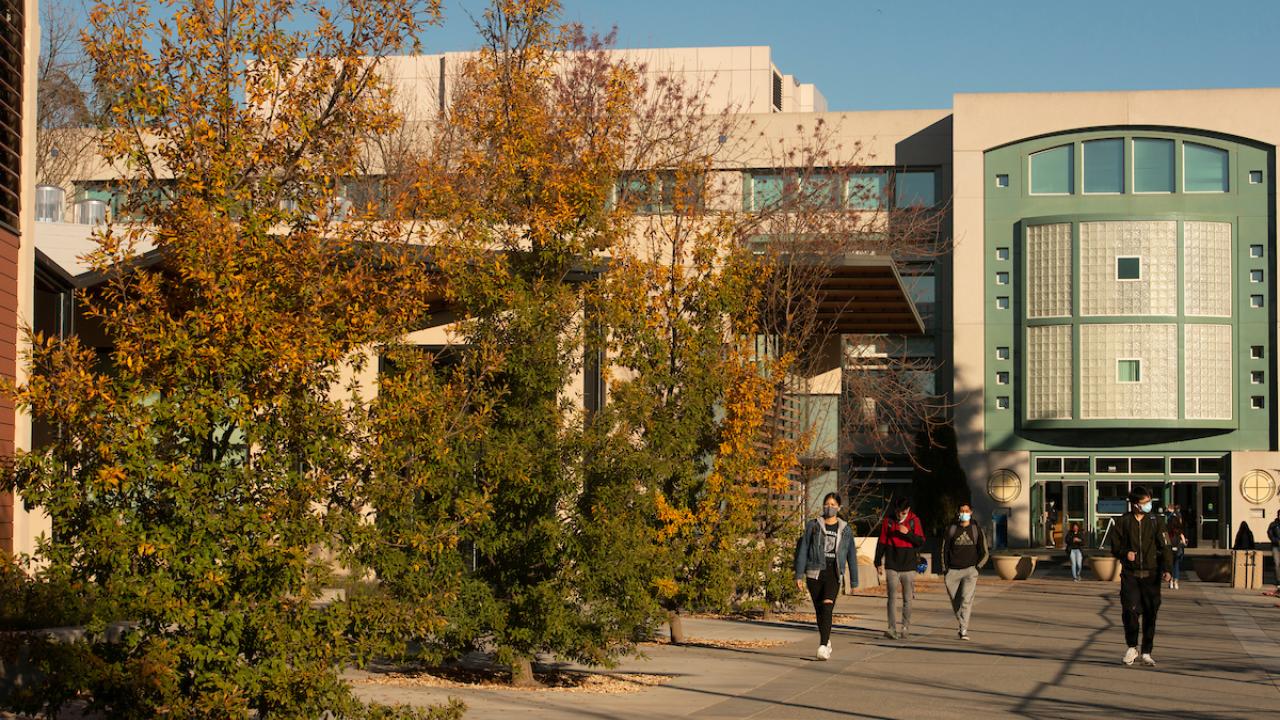Coming into a four-year university is a new experience for transfer students. When I first came to UC Davis from community college, I felt like I was in a completely different world. There were many things that I did not expect, which I want to share with any fellow transfer students, so you can be prepared for this exciting new step in your life.
Bigger Campus, More People
A big difference between community college and university is being on a new campus, especially one the size of UC Davis. At a community college, everything is close and just a short walk away. I remember during my first quarter at UC Davis there were multiple times where I entered the wrong building or had to ask for directions.
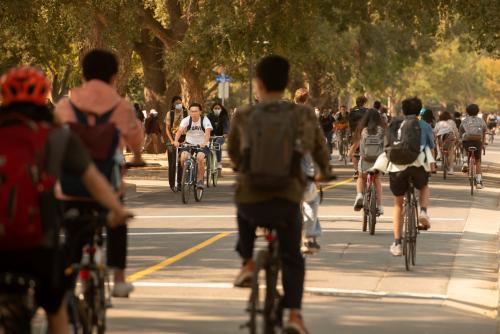
I was able to adjust by exploring campus and getting familiar with the walkways and entrances to get to different buildings and places. Personally, I walk to classes. However, biking is a good option since the campus is built for bicycles and there are many spots to park your bike.
A resource I recommend at UC Davis is going to the information desk in the Memorial Union, where they provide students with a campus map that is super helpful, since it covers the whole campus and shows where every building is. You can also use the online map of UC Davis.
Adjusting to Different Workloads
Another difference between community college and university is the pace. At a community college, the course workload is not as difficult. At a university, especially if you are on the quarter system, you have a shorter amount of time to turn in work, which requires strong time management skills.
I found this out in the middle of fall quarter when I had two essays due the same week as a huge quiz. Time management, as I discovered, was essential. Some things you can do to help is write out your daily schedule on your phone or use an app like Trello to keep track of items you need to complete.
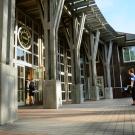
Transfer and Reentry Center
Need help adjusting to UCD? The TRC has resources for transfer students. Stop by!
Talking to your Profs
At a community college, it’s easy to connect with professors since the class sizes are usually smaller. But at a four-year university with bigger classes, you might not feel as comfortable approaching the professor. If you’re feeling shy, try to talk to them one on one before or after class. For me, this takes the pressure off and allows me to ask any questions I have.
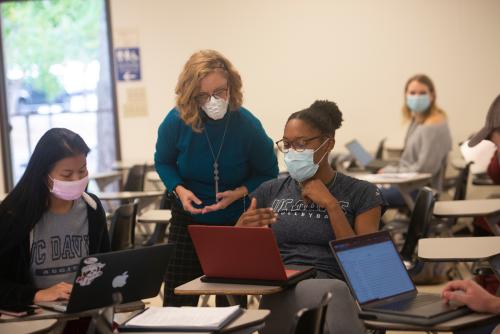
As an example, I took a computers and technology class at UC Davis, and I was super nervous when I first walked into the classroom. At the end of class I told myself, “There are not many students by the professor. Let me go and introduce myself.” With a big smile on my face, I walked down the stairs and approached the professor.
Dr. Sellu was very kind and then answered my question along with telling me, “Come to office hours if you have more questions, or you can ask before or after class.” Hearing this made me less nervous, and I felt better about talking to him (and other professors) during office hours.
Finding Fun Opportunities
At a community college, there are fewer student jobs and student clubs. Meanwhile at a university, there are many more opportunities, such as getting involved in research and joining different student activities, like the programs that happen at the Activities and Recreation Center at UC Davis.
I got involved on campus by being on the lookout for opportunities through emails and newsletters from different campus organizations. As an example, I became a part of the Student Alumni Association (SAA) based on an email I got that mentioned they were looking for students to join the committees that make up SAA, including the student engagement committee, traditions committee and networking committee. I completed the form and had a successful interview which led to me being a member of the student engagement committee.
My advice is to not be shy, and instead go ahead and take advantage of opportunities that interest you. It’s important to know that UC Davis has around 800 student organizations, so you are certain to find something you enjoy. You can find more information on the Center for Student Involvement website.
Covering the Cost
Community college is generally less expensive than a university. For example, if you compare in-state tuition at Woodland Community College, where I attended, to the in-state tuition at UC Davis, there’s a huge difference.
UC Davis offers various grants and scholarships to eligible students to help pay for college. It never hurts to apply for scholarships. As a person who won multiple scholarships, it is one of the best feelings you can experience. When you are awarded one, the money can help pay tuition or be used to buy books that you need for classes.
I highly recommend checking out the financial aid web page linked above to learn more about UC Davis scholarships, and also search for outside scholarships.
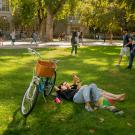
Financial Wellness
UC Davis has resources to help students find financial aid and live on a budget.
Launching a Career
A bachelor's degree from a university can launch you into more careers versus only having an associate degree, and gives you the option to pursue graduate school if you wish.
This is the main reason why I chose to pursue a bachelor’s degree, because it will lead me to get the job I am interested in and motivated for, and also have more financial stability through higher wages. Personally, I am planning to work after my bachelor’s degree then pursue graduate school a year or two later, after I have experience in the field of community development.
And for a final piece of advice, most four-year campuses have a career center that can be a good resource for learning about things you can do after you graduate. At UC Davis, the Internship and Career Center provides help with résumés and cover letters along with resources for finding internships. Make sure you visit the ICC.
Overall, though the tuition at a university like UC Davis is more than you pay at a community college, it’s worth it to earn a four-year degree because that degree has the power to get you the job or the work you want to do after graduation. It’s going to be hard to complete the degree, but with perseverance and grit, you can do it!
Gurtaj Grewal is majoring in Community and Regional Development. He is originally from Merced, California, and now lives in Woodland, a short drive north of Davis. He is involved on campus by being a Transfer and Reentry Center peer advisor and the president in training for the Transfer Research Society (a student organization that helps UCD transfers connect with research).
